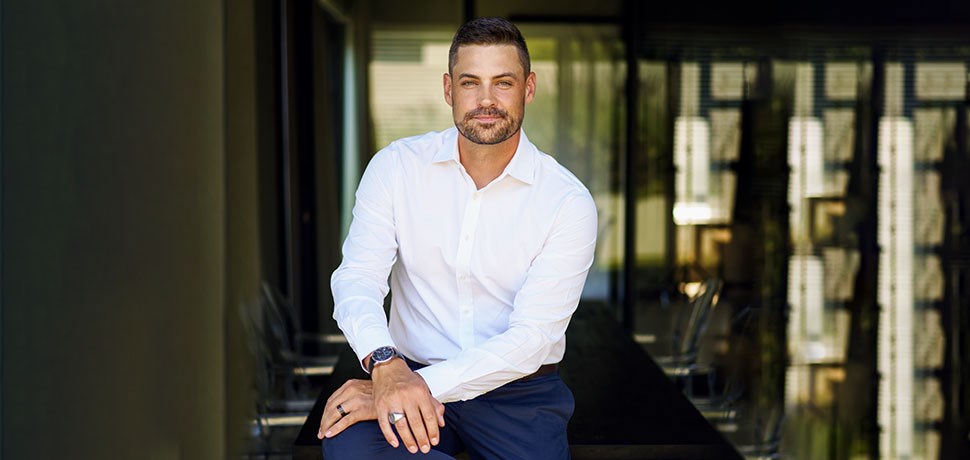Download Erik’s Leadership Manual 2023: here.
Q: This is your third leadership manual. How is it different from previous years and why is it so important to address change – and how to successfully navigate change – in 2023?
I wrote the first Leadership Manual at the end of 2020 with the goal of providing leaders with some support and inspiration as we entered a period of extreme uncertainty. It was so well received that I wrote the second Leadership Manual, Recalibrate, at the end of 2021 to support the continuing changes we were all dealing with throughout 2022.
This year I’ve slightly different approach. Instead of focusing on trends and predictions, Leadership Manual 2023 and a playbook. It outlines six specific plays that leaders can implement to become masters of change. Why is this important?
Ultimately, all of the work I do as an author, speaker and as a leadership coach focuses on change. For us to go from good to great, from here to there, from harmless to dangerous, from survival mode to thriving, we must become change leaders.
Q: As a playbook, how does this year’s Leadership Manual support change masters and what advice would you offer leaders to ensure they get the most from it?
As I mentioned, there are six plays outlined in the manual, each addressing a specific challenge that leaders face, either in their personal capacity or the work they do with their teams. These are practical ways of solving common challenges and they are straightforward. However, as we all know, practice is nine tenths of the game. Even clearly laid out steps do not guarantee success. The key is to accept that change is the ultimate skill to master. Most people with good intentions fail at changing because good intentions aren’t enough. Leaders can learn frameworks and even apply them, but if they do not stay consistent, iterate, foster new habits and then practice, practice, practice, most commitments are never followed through.
Q: You are in the business of helping people to become the best versions of themselves. What do you believe is the secret to success?
We need to think differently about change. I call this transformation through accretion, which means growth through the gradual accumulation of additional layers. If your focus is on accretion, you accept that transformation does not have a beginning and an end. Instead, it is a mindset that embraces change and then small, continual transformations that change brings.
Every single day we are all in the process of accreting small decisions and actions. These small decisions and actions accumulate and lead to eventual transformation. But that means that the small decisions we make and actions we take are incredibly important and powerful because they dictate what that transformation looks like and who we become as individuals and leaders.
In the manual, I use these words: What you accumulate will lead you to transformation. Good to great. Or bad to worse. This is the foundation of understanding the link between theory and practice and what it takes to become great.
Q: What are the key lessons you are sharing in this year’s Leadership Manual?
Instead of focusing on the transformation, on tomorrow, focus on today. For me, this Leadership Manual succeeds if a leader walks away and is able to focus on the process, habits and small decisions that accumulate and result in who they want to become, where they want to go, what they want to achieve.
We have a tendency to focus on the past or the future without giving the present enough attention. The problem is that the present will soon be the past and the small things that we do today could fundamentally and drastically change the future. We must never underestimate the effect small things can have over time if they are done consistently. Similarly, simply thinking about a future goal is no way to achieve it.
There are four key-takeaways to the accretion rule:
- Accretion refers to growth or increase through the accumulation of additional layers.
- Small decisions and actions accumulate and lead to eventual transformation.
- Instead of focusing on transformation, it is important to focus on the small, daily habits and decisions that contribute to growth.
- Accumulating the right habits and decisions can lead to personal and professional greatness, while accumulating the wrong ones can lead to mediocrity or disaster.
Q: What will it take for readers to change their daily decisions and actions?
Ultimately, it comes down to discipline. I have outlined six frameworks that I have seen work. But without discipline, there can be no transformation.
Discipline is the master key of change. It speaks to our ability to stay consistent and to do what we said we are going to do, irrespective of how the world unfolds around us. When I assess failed change initiatives that I have witnessed, I cannot help but feel that a failure in discipline is to blame, and a big part of that is the lack of language we have around discipline. We view ourselves and each other as either disciplined or not, when in fact there are many levels of discipline. I have outlined these levels in the Leadership Manual, and my hope is that this gives us a measuring stick for discipline, which allows leaders to ask, “At what level am I currently operating?” From there, it is far more possible to be more intentional with the small actions and decisions that we accumulate.
To become a master of change who can learn to be more disciplined and implement the small, daily actions and routines that ultimately take good to great, download the Leadership Manual.




